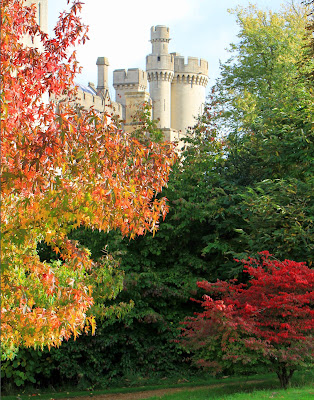Readings: 1 Jn 2:18-21; Ps 96; Jn 1:1-18
______________
Here
we are on the last day of the year, ready to say, “Goodbye” to 2024, for which we
thank God, and look forward to the beginning of 2025.
______________
Have
you ever noticed that there are no road signs in The Villages that say, “Dead
End”? You’ll see them everywhere else, in Leesburg and Wildwood and Lady Lake.
But in The Villages the relevant signs read “No Outlet.” My guess is the
developer decided that signs proclaiming “Dead” and “End” might not be very well-received
in a large retirement community advertised as the “beginning of your new life.”
I
really have no problem with that, because for a faithful Christian there are no
dead ends. Indeed, the end is always the beginning of something immense and
wondrous.
Mary Queen of Scots, who for
centuries was treated horribly by most historians, is today undergoing deserved
rehabilitation. Anyway, I once read that shortly before her execution she
embroidered these words:
“In my end is my beginning.”
For the Christian, then, the
life of faith is always the beginning; there really is no end.
Anna,
the Temple prophetess, demonstrated this in yesterday’s Gospel passage. Although
she was at the end of her life, she was “looking forward,” not back. We
see this, too, in today’s passage where John starts the Prologue to his Gospel with
the words, “In the beginning was the Word.…” But in our other reading
from John’s First Letter, he begins with the end…
“Children, it is the last hour…"
For John, “the last hour”
is also a “beginning.” Of course, to John it's really all of one piece, just
as it should be with us. Yes, indeed, God is the beginning and the end...the
alpha, the omega...and He’s active through it all.
I think we sometimes forget
that. Oh, yes, we know God made the heavens and the earth, but then far too
many today go through their lives as if He’s no longer involved with His
Creation, no longer involved with us. For we, too – each one of us – are His
Creation, and His involvement with us couldn’t be more intimate, more involved,
more pervasive than it already is.
John wants to ensure we
understand this: the fullness of God’s love for us manifests itself through His
Son, Our Lord Jesus Christ. “Fullness” is the correct word, too, because
God’s love begins with Creation, redeems us through the Incarnation, and leads
us into eternity with His merciful Judgment…and that’s about as full as it
gets.
Throughout it all, Jesus is
the Word.
“In the beginning was the Word, and the Word was with God, and the
Word was God” [Jn 1:1].
And the Word of God is creative, for "all things came to
be through Him..." And when God speaks, things happen:
“Then God said: Let there be light, and there was light.”
The Father, then, speaks
through His Son, the Word, and all is created. But when you or I speak, we’re lucky
if anything happens. Heck, even my little dog, who left us last year, obeyed me
only when it suited her.
And then John shares those
words that mean so very much to us:
“And the Word became flesh and dwelt among us…”
Yes, Jesus became one of us,
blessing our human existence with His Divinity, infusing us with His glory, if
only we accept it.
Today, then, as we consider
making New Year resolutions, perhaps we should just start anew.
I remember reading about a
monk who confessed how he used to complain about the number of steps in his
abbey. As he aged, he found that climbing those steps wore him down.
“I used to count them as I
climbed,” he wrote, “just to help me get through them. But then, one day in
prayer I realized my spiritual life needed, again and again, to start at the
beginning. Now, as I go up the steps, I count each step aloud, “One, one, one…”
Consider today and every day
a new beginning, asking God to come into our hearts and lead us as we struggle
to follow Him on the Way.
Sisters and brothers, Sacred
Scripture has depths beyond our understanding, and I often pray after our weekly Bible
Study that I haven’t misapplied them or mangled them too badly as I try to
share them with others. But, as we read God’s Word, and pray it, and live it, we
become like the two on the road to Emmaus, because Jesus walks with us, from
one beginning, not to the end, but to a new beginning.
God love you all...and Happy New Year.





